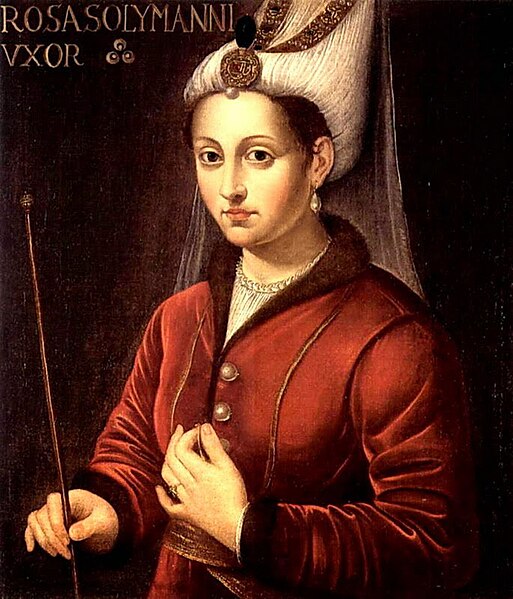In the Muslim world, the title of umm al-walad was given to a slave-concubine who had given birth to her master's child. These women were regarded as property and could be sold by their owners, a practice that received an endorsement from Muhammad. However, later after Muhammad’s death, Umar authorized a policy during his time as a caliph, that prohibited owners from selling or gifting their umm al-walads, and upon their owners deaths, they would be granted freedom. Ali, Muhammad's cousin and son-in-law, initially concurred with Umar's decision. However, after Umar's death and the death of Uthman, who maintained the policy, Ali reversed it in the later period of his caliphate, declaring that umm al-walad was still sellable despite having given birth to the owner's child.
Roxelana, a victim of the Crimean slave trade, became an umm al-walad when giving birth to a child by her enslaver, sultan Suleiman the Magnificent.
Islamic views on concubinage
In classical Islamic law, a concubine was a slave-woman with whom her master engaged in sexual relations. Concubinage was widely accepted by Muslim scholars in pre-modern times. Most modern Muslims, both scholars and laypersons, believe that Islam no longer permits concubinage and that sexual relations are religiously permissible only within marriage.
13th century slave market, Yemen. Slaves and concubines are considered as possessions in Sharia; they can be bought, sold, gifted, and inherited when owners die.


